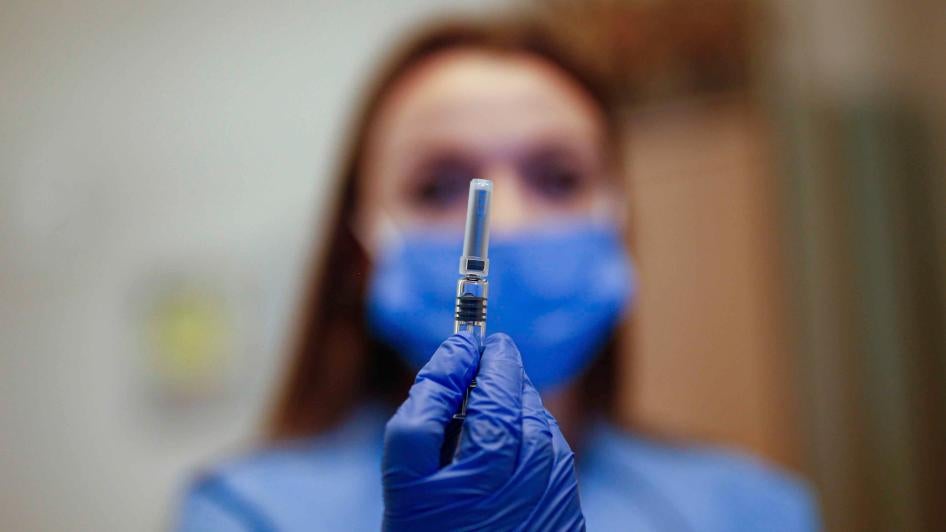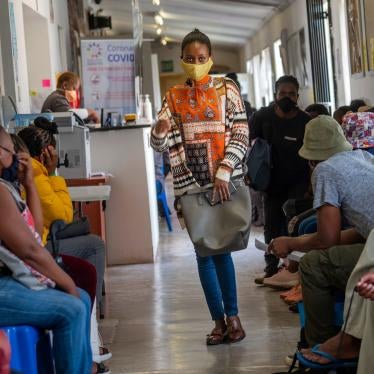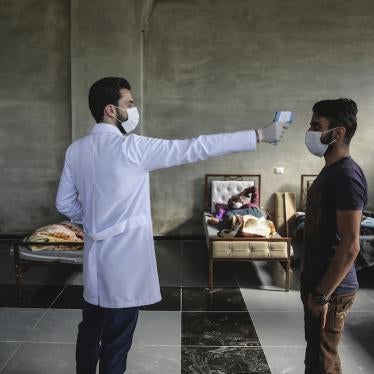Canadians are getting increasingly frustrated as supply disruptions delay when they will get access to the COVID-19 vaccine shot. Europe’s dramatic announcement that they would be controlling when and how vaccines produced in their region can be exported to 100 countries, including Canada, adds to existing concerns about delayed deliveries. Amid this scramble, it is easy to lose sight of the fact that in other parts of the world, vaccines are not available at all. Bloomberg reports that while more than 100 million doses of COVID-19 vaccines have been administered worldwide, fewer than 100 of those were given to people living in low-income countries. Some people may not see COVID-19 vaccines until 2024.
Canada donates generously to the COVAX facility, a public-private partnership set up to facilitate vaccine distribution globally. COVAX, which is reliant on wealthy countries and donors to meet its ambitious budget, aims to supply poorer countries with vaccines for 20 percent of their populations by the end of this year. This will leave many countries that cannot currently afford to buy vaccines directly from manufacturers with a huge gap between vaccine supply and demand. Even those that find a way to finance purchases will find limited options since wealthy countries have purchased and reserved most available stock.
Canada, for example, has booked enough doses for five times its population. Prime Minister Trudeau, U.S. President Joe Biden, and policy makers from the European Union, have discussed donating “extra” or “surplus” doses to people in the developing world. However, it’s not clear which vaccines they’re offering to share, or when. What is clear is that donations alone, from Canada or others, won’t be enough.
A better solution is available. Human Rights Watch and many others are supporting a proposal by South Africa and India to waive some intellectual property rights for medical products until “widespread vaccination is in place globally.” The World Trade Organization meets on February 4 to consider the idea but Canada is sitting on its hands. It has not joined the over 100 countries and scores of civil society organizations supporting the proposal to temporarily waive some provisions of the Trade Related Aspects of the Intellectual Property Rights (TRIPS) Agreement. Sharing the recipe for vaccines by pooling intellectual property and issuing global, open, and non-exclusive licenses could help scale up manufacturing and expand the number of vaccine doses made. This means instead of arguing about how to ration better we could be rationing less.
This is not a question of morals vs. money. While the approach might cut into a few pharmaceutical companies’ bottom lines, it has the potential to actually boost the broader global economy. A new study, which was funded by the International Chambers of Commerce, concluded that vaccine inequity and delays in vaccinating the developing world could cost the global economy $11.7 trillion, half of which would be borne by advanced economies even after they successfully vaccinated their entire populations.
COVID-19 vaccines have the potential to become a new battleground for great power competition and “vaccine diplomacy.” China and Russia have been offering the developing world priority access to their formulas. India and New Zealand have said they will donate vaccines to neighbours. A global movement, including more than 140 world leaders as well as COVID-19 survivors and loved ones of those who died, is calling for a “people’s vaccine.” Prime Minister Justin Trudeau voiced early support of these efforts, but in practice Canada’s actions have not helped make the vaccine a global public good.
The COVID-19 pandemic has triggered an unprecedented human rights crisis, with at least 100 million infected, 2.1 million losing their lives, and many more continuing to suffer long term COVID-19 symptoms. Millions have been pushed into extreme poverty as economies collapsed. Women and children were subjected to higher rates of violence in the home. Autocrats used the pandemic to cement their power. Asylum seekers looking for refuge across borders were stopped. Scientists rose to this challenge, developing a vaccine at record speed. But governments have failed to set up safeguards to ensure these vaccines are available to all.
There’s still time to change course. Canada should throw its support behind the TRIPS waiver proposal at the World Trade Organization. Ignoring the vaccine needs of the world’s poor wouldn’t just be a public health failure, it’s the type of inequity that we should deem intolerable.










